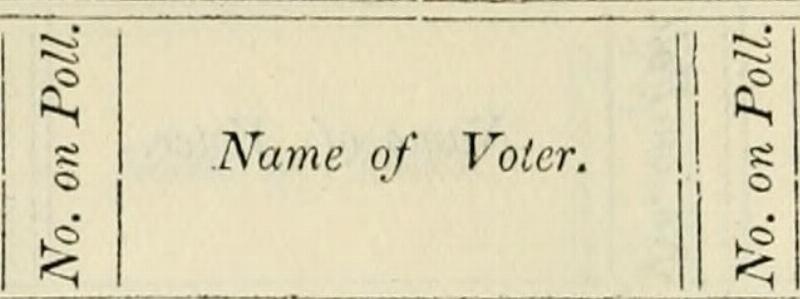Ohio Volunteers Uncover Massive Irregularities in Voter Database

In the spring of 2021, volunteer investigators from Ohio acquired publicly available voter data for all 88 counties and started their analysis. Over the next year the researchers found hundreds of thousands of records in their state’s voter rolls with irregular data for which they couldn’t identify consistent explanations, no matter who they asked.
In late summer of 2022, they reached out to Marly Hornik, co–leader of New York Citizens Audit, whose team had identified similar inaccuracies in the New York State data.
In 2023, Hornik and Harry Haury, an expert in cybercrime and election law, founded United Sovereign Americans and developed a legal strategy for securing the validity of the 2024 election based on federal civil rights law and Supreme Court precedent, which established for election officials that ignorance of the law is no excuse. “Congress seeks… to guard the election of members of Congress against any possible unfairness by compelling, under its pains and penalties, everyone concerned in holding the election to a strict and scrupulous observance of every duty devolved upon him while so engaged… The evil intent consists in disobedience to the law.” In re Coy, 127 U.S. 731 (1888).
The National Voter Registration Act of 1993 requires election rolls to be accurate. The Ohio team had collected more than a million pieces of evidence of apparent violations of law that called into serious question the accuracy of Ohio’s statewide voter roll database at the time of the 2022 general election and its subsequent certification.
The 14th Amendment of the U.S. Constitution stipulates that only legally qualified voters may vote. The Ohio team uncovered evidence that thousands of voters in Ohio had apparently registered before they were born!
Hornik soon invited the Ohio researchers to join United Sovereign Americans and shared more of their data investigation skills and litigation strategies. As a result, the Ohio team, in conjunction with USA, has been able to conduct a peer-reviewed audit of the state’s voter rolls at the time of the 2022 Ohio election and has prepared a report that summarizes the issues they encountered.
The day after certification in 2022, the Ohio statewide voter roll database showed:
- 58,209 resided in an apartment or in a mobile home lot but had no unit number as required on their voter registration application to ensure proper delivery of mail, including mail-in ballot material.
- 4,143 were older than the oldest person in the U.S. at the time or were too young to legally register.
- 6,348 had a date of birth that was different in 2022 than it was in 2020.
- 253,486 voters supposedly registered on January 1st, 84,221 voters registered on another Federal holiday and 201,693 voters registered on Sunday — all times when Ohio boards of elections and state offices are closed.
- 120,094 had registration dates in the 2022 state voter file that were earlier than their registration date in the 2020 file. 59,025 people were listed as registering to vote before they were born.
- 243,583 had state identification numbers that had changed since 2020, even though federal laws require each voter be issued “a unique state identifier.” 34,233 had 2 to 5 registration records with different state identification numbers, making it possible for them to vote more than once.
Federal law governing elections specifies that the error rate in Ohio’s 2022 election allowed a mere 34 errors. Instead, the election in Ohio had been certified despite 713,296 apparent voting violations.
In addition to federal laws cited above, there’s also the law of common sense. In elections, the number of votes counted must equal the number of voters who voted.
On December 10, 2022 — 11 days after the Ohio canvass officially concluded and one day after the election was certified as accurate and compliant — the number of votes reportedly cast (4,201,368), and the number of records identified in the state’s official list of legally registered voters as having voted (3,039,289) differed by more than a million. In fact, the day after certification, 15 counties had each updated fewer than 10 names to the state’s voter history. Four hadn’t updated any.
On January 19, 2024, the Ohio team submitted a written report to Frank LaRose, Ohio Secretary of State, sharing their concerns about “serious breaches of statutory standards on both the Federal and state level required by law.”
Our concern, obviously, is that the resulting election certification apparently was made despite objective, factual data raising concerns that the State had massively compromised systems, and that the certification may represent serious disregard of the voters’ civil and constitutional rights within the state.
The Secretary of State office’s response placed responsibility on shortcomings in county boards’ “staffing, IT expertise and database technology,” and claimed “the core problem is almost always human data entry.” It also asserted, contrary to Ohio law, that the county-maintained voter registration list is the official list. In actual fact, Ohio Revised Code § 3503.15 establishes: “The statewide voter registration database shall be the official list of registered electors for all elections conducted in this state.”
Next steps for United Sovereign Americans include filing for injunctive relief in federal district court against dilution of the vote and the use of a noncompliant voting system “against our right and duty to choose our representatives.” On March 6, with Maryland Election Integrity, USA filed its first challenge in federal court citing similar irregularities in Maryland Board of Elections data.
With the Ohio team’s help, United Sovereign Americans will be engaging in a nationwide educational and advocacy effort to raise public awareness and support, as much work remains to ensure that the 2024 election will be provably accurate and compliant with federal and state laws. In coming weeks, Marly Hornik and Harry Haury will be sharing results of their investigations from other states.
Image: Internet Archive Book Image
This article has been archived for your research. The original version from American Thinker can be found here.

